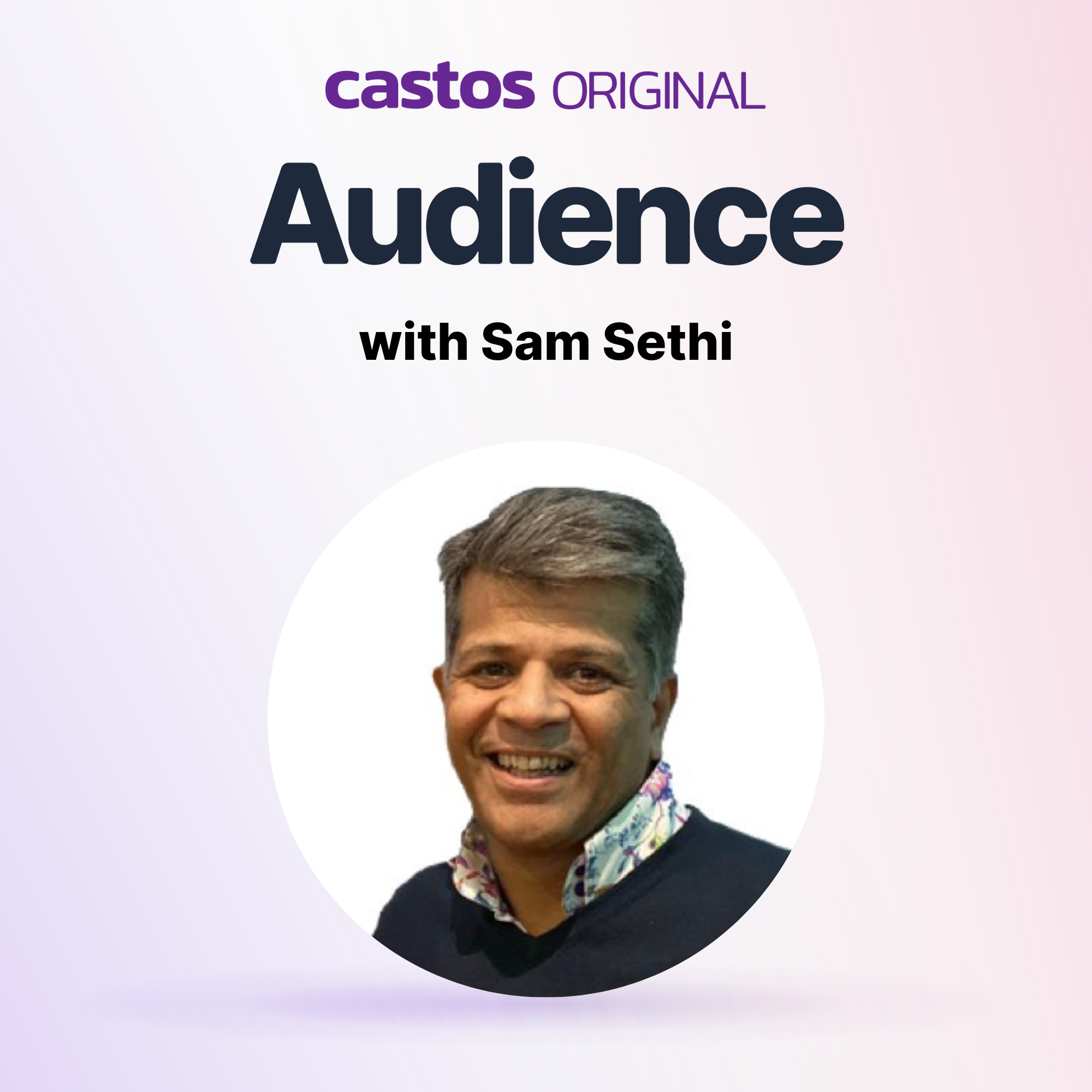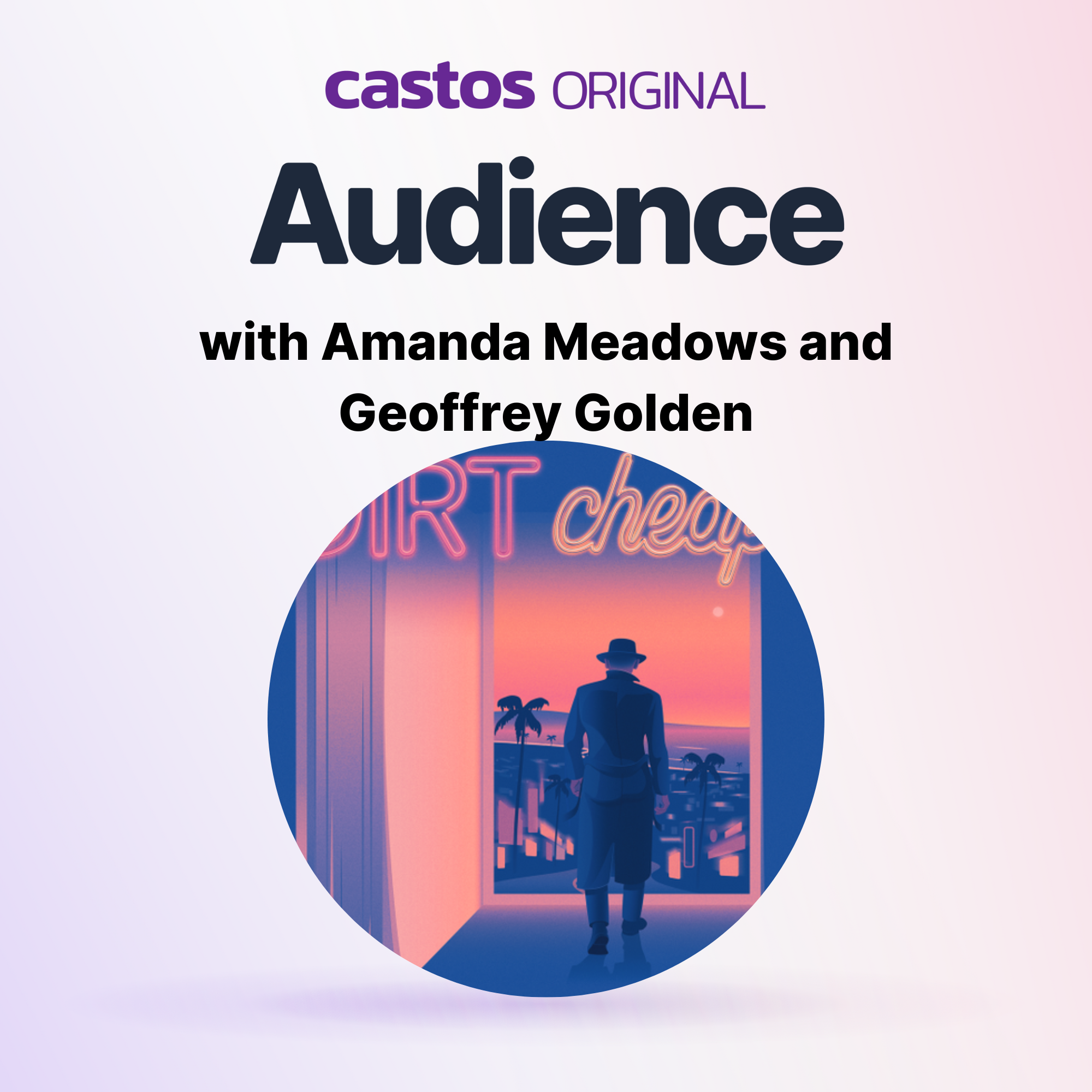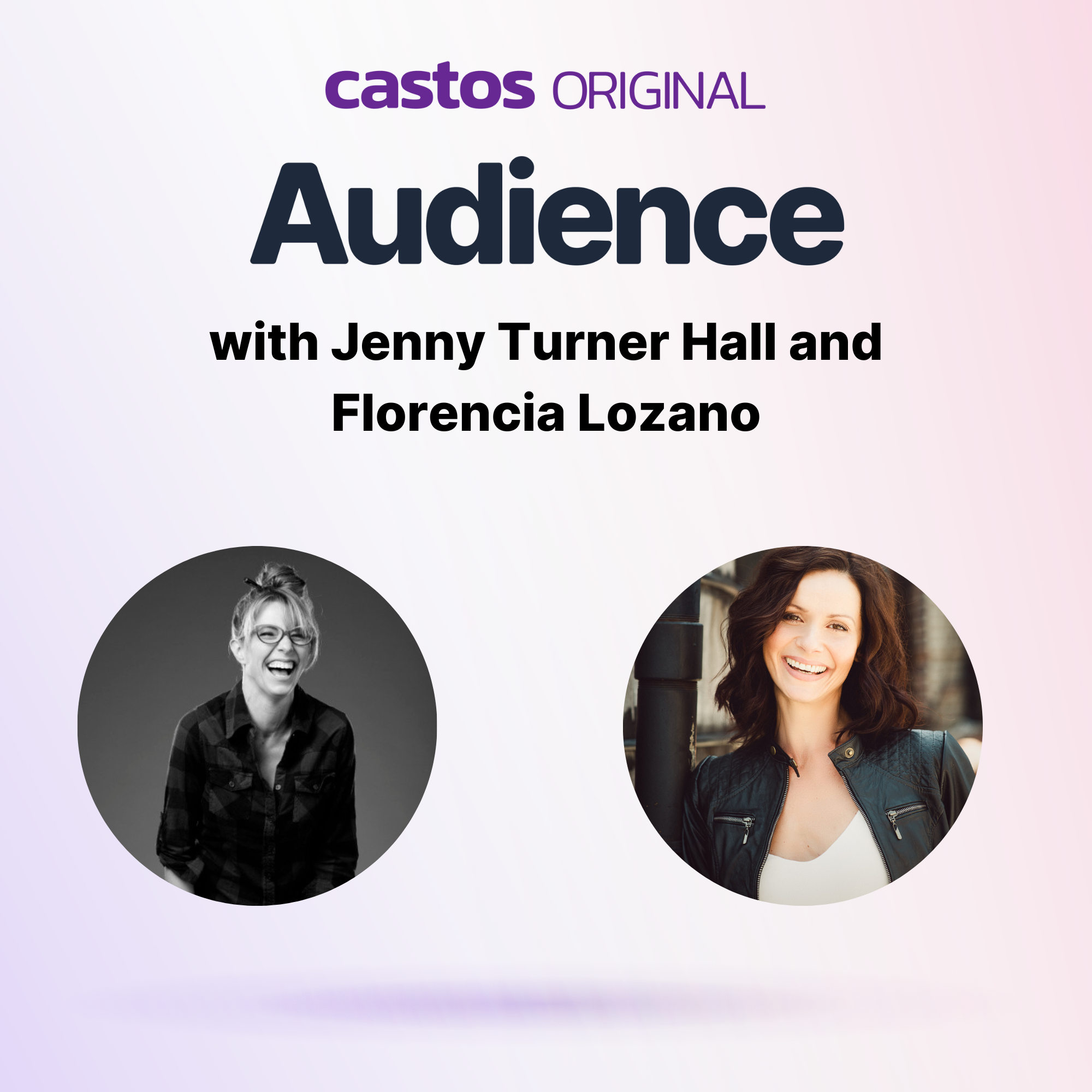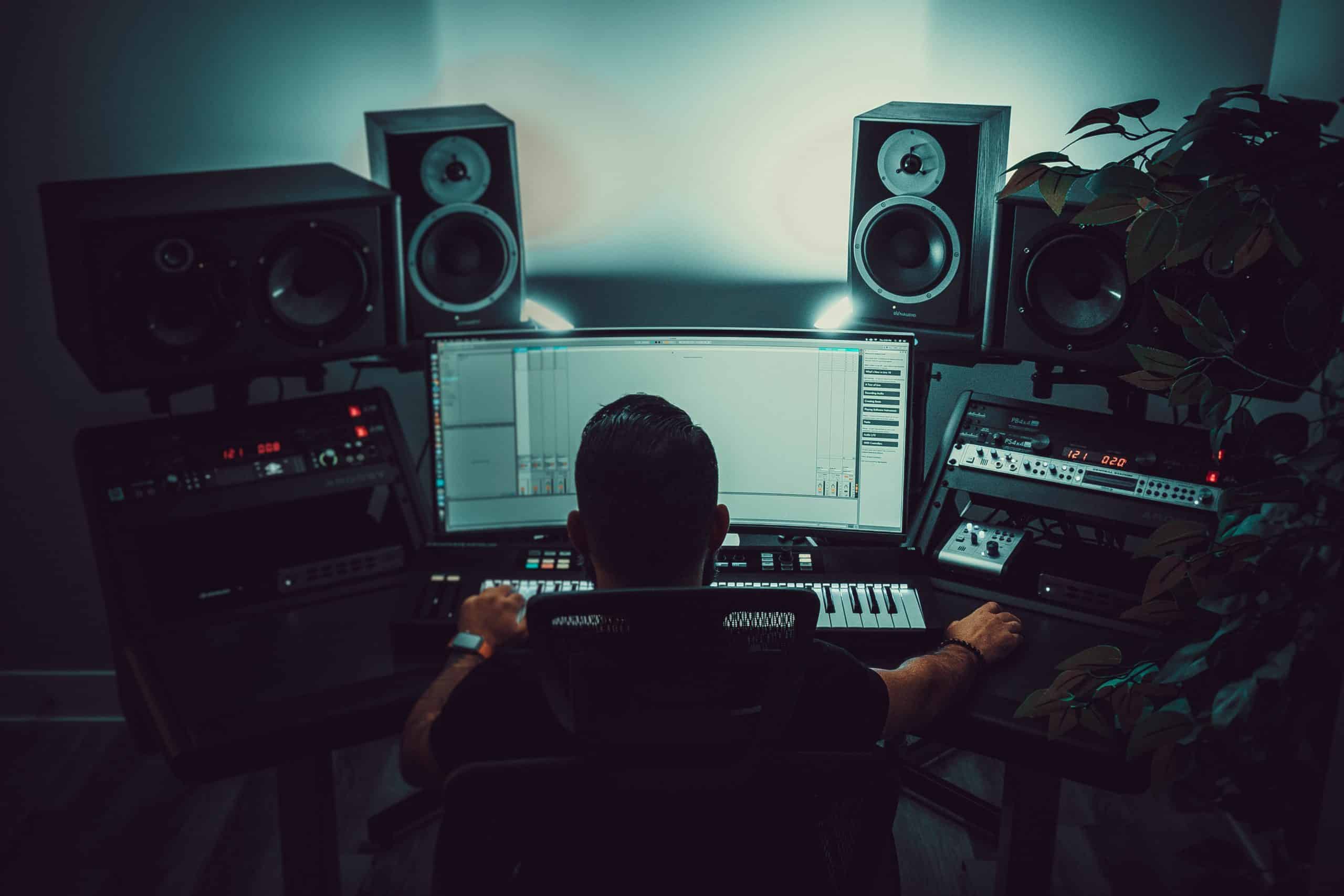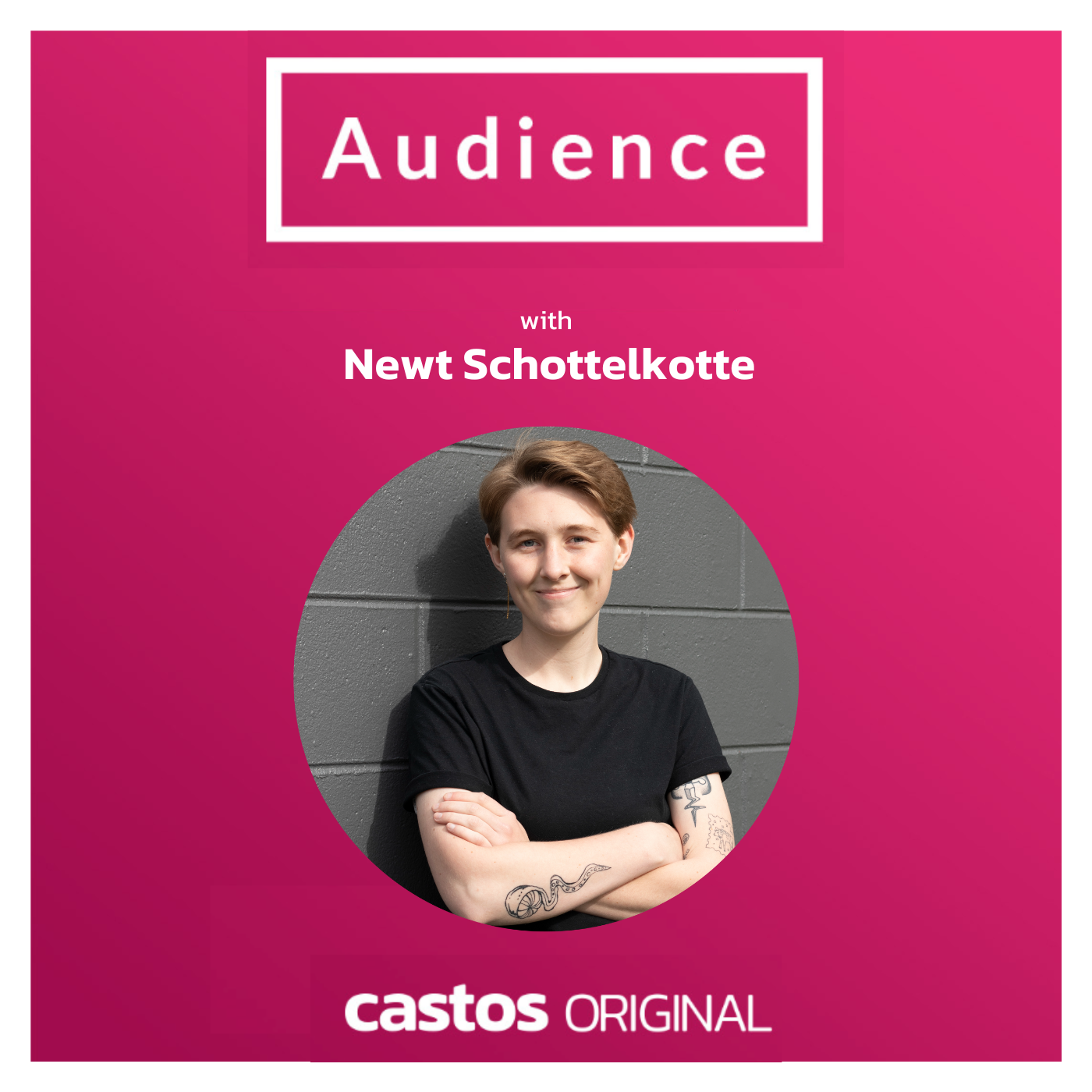Speaker 0 00:00:00 It seems like a lot of podcasters who make weekly, biweekly or even monthly shows eventually experience something similar in some way or another. Their show changes over time. In the case of Sam Seth, that meant merging Pod Land Daily with Pod News Weekly.
Speaker 1 00:00:18 As much as I would enjoy having that conversation, it wouldn't have longevity as a podcast. It would probably be a season, probably get through 30 or 40 influences of interest and the repetition would be quite high. Cuz most people will say the same thing. Either it's a, you know, a road mic or a shore mic, and then it'd be like, oh, right. Okay. Well then let's not ask that question for the 50th time.
Speaker 0 00:00:42 Next. He and Matt catch up for a conversation about how his show has changed. My name is Stewart and this is Audience, a Casto original series for podcasters in the pursuit of creating better audio and uncovering the business that powers audio creators. Speaking of making better Audio, Casto can help with our team of professionals. We can help you make your show add in our suite of integrative tools like Stripe or our private podcasting app. And Casto has everything you need to bring your podcast to life. Learn more by emailing
[email protected] or by clicking on the link to show notes. So if you follow Pod Land and Pod News, you may have noticed some recent changes. Our executive producer Matt Madeiros, caught up with Sam, Seth to chat about it.
Speaker 3 00:01:39 I like a lot of folks in the podcast industry we're like, episode 100, Sam's going away. Not quite, not quite. What, what, what did you do with Pod Land and why?
Speaker 0 00:01:53 James
Speaker 1 00:01:53 Gave me an ultimatum. It's going under my brand or you can leave. No, it didn't know. I think it was a case of James had been to Dallas and people were getting confused between, oh yeah, I listened to your thing called Pod Land Daily and, and, and Pod News Weekly. And, and it was, and James was like, no, no, no, no. Pod News Daily is this and Pod land is over here. And so James said, look, should we just put it under one brand? I went, yeah, I'm not bothered. Let's Cool. So we're now Pod News Daily, which James does, and then Pod News Weekly, which James and I do once week.
Speaker 3 00:02:27 So Pod News Weekly if you've not heard it. Uh, so you know, you have pod we have, we the collective industry have pod news where it's, uh, a daily flash of three to five minutes, depending on what the news is. Headlines talking about what's happening in the podcast space. Pod land was always the ex in my eyes, how I had seen it was always the extension of that, of going deeper on the topics that were, uh, the bigger topics of the week now all under one roof, branding change, all of that stuff change. I also noticed the, the format of the show change. So a slight change in audio design, you know, segment transitions and all that stuff. Was that just like right off the cuff and it just happened in the next episode? Or did you guys spend some time like thinking about how that transition it was made because it was pretty impactful. Small changes, but it was impactful for me as a, as a weekly listener.
Speaker 1 00:03:20 Oh, thank you. No, um, we, we didn't spend a lot of time doing that. We both got radio background, so both of us have been live radio presenters. We're used to that type of setup. And we've also realized that we wanna make it smaller and tighter. Um, we wanna make it less verbose. People's time is precious. So the average pod land was about an hour, but it then started going longer and James was getting more upset with me for, for interviewing people much longer.
Speaker 3 00:03:49 James is the root of all of these issues.
Speaker 1 00:03:52 <laugh>, he's the boss. Um, so it, it, it fundamentally said, look, if we're gonna change the name of the show, let's tighten it up. Let's make it a little bit more, you know, in the format that we wanted to make it from day one.
Speaker 3 00:04:04 I know you took a little bit of flack from, uh, somebody that you guest hosted with on the audience podcast, Adam Curry. Yes. Uh, about the editing through DS script and stuff like that. D script now recently launched a new version, announced some massive round of funding. I think you might be speaking to them in the future,
Speaker 1 00:04:24 Literally straight after this interview. <laugh>, yeah. Nice.
Speaker 3 00:04:27 <laugh>. Nice. Uh, are you still using all that tooling and, and how did you adjust as a pod, a seasoned podcast or slash radio person when you, when you heard some of that feedback?
Speaker 1 00:04:35 No, it's good. I always look, being a radio presenters fine. I mean that, that's something that you either can do or you don't. And being live is fun. It gives you that extra edge. But actually editing the descript, you know, it is a fine line between Overed and over Uming and Earing and Dearing and doing all of that stuff and having some natural voice. I think. I don't go to the edge where Adam says, do no editing and Todd is no edit. I mean, yes, he's done 1600 shows and he hasn't edited one of them, so that's fine. But we do actually pre-record because James is in Australia and I'm in the UK so we, we, we don't really see as, sadly we would do it live, but America's asleep and that's the biggest audience that we have. So it would make no sense to, uh, talk to three people in America at two in the morning, which is what it would be for them. So we do take that opportunity to edit, but no, look, I'm very open to people, more experienced, more launchable than me, like Adam giving me feedback that maybe I should push back on it. So James, now actually to be fair, does the editing for Pod News Weekly as well. So he's a little bit less tighter on the ums, the earths, the, you knows, the whats and I do the interview editing, so we split it up that way.
Speaker 3 00:05:55 Yeah. You know, as somebody who uses Descript to edit one of my shows and produce one of my, my personal shows, not at Audience, Stewart is on the call. He's, he's the guy in charge of that. If he, if he saw me slide descript onto the screen, he would throw something at me. But, uh, for the novice editor and slash producer, it works really well for me. And as somebody who listens to many forms of podcasts, I actually didn't mind that the, that edit, and I know we're getting in the weeds here, but audience is about creating podcasts for folks. Um, I didn't mind the hard edit of Dsri because the context of the show to me is the discussion around news topics. So I was never like, oh, like I feel like I'm missing something. Like, no, it's like your point of view, James point of view, discuss, you know, headline, move to the next, and I really appreciated that.
Speaker 3 00:06:48 Right. But I understand also that preserve the nuances of the human voice because my God, AI's taking over everything. We'll talk about that in a moment. Um, but uh, yeah, so just as, as a side note, like it never really bothered me. Uh, and I, you, I appreciate it outta that context, but now personally, let's transition to what you're going to do personally. Now, a couple months ago you mentioned you were doing, you were might go out and do another podcast. I won't say the name of it cuz maybe you're still going to do that other
Speaker 1 00:07:17 Podcast. No, no. So let, yeah, I was gonna do a podcast called Off the Mic and it was really gonna be getting people like yourself, Matt, to come on and talk about your life away from podcasting. And it was just gonna be a fun, irreverent sort of, Hey Matt, you know, what's your favorite drink? How did you get into it? What's your, the standing questions we all get asked as podcasters, what's the best mic to use? Where, you know, should you use this, that, and the other? So it was gonna be that, but I realized that as much as I would enjoy having that conversation, it wouldn't have longevity as a podcast. It would probably be the season, probably get through 30 or 40 influences of interest and the repetition would be quite high. Cuz most people would say the same thing. Either it's a, you know, a road mic or a shore mic, and then it'd be like, oh, right, okay, well then let's not ask that question for the 50th time.
Speaker 1 00:08:06 And so one of the things I did, uh, before I joined James on Pod news was I had my own podcast called Sound Talks Technology. And just to wind back a little bit before that, I started TechCrunch Europe. So I was a blogger and a journalist talking to loads of startups and I was an entrepreneur myself having done three or four startups. So for me to go into doing TechCrunch and then be blogging about it, then to take that knowledge set and bring that into my first learning of podcasting about five, six years ago was how I did it. So that got to over 150 episodes and I then joined James and I stopped that one. But I have an interest in technology outside of just podcasting like yesterday and on this week's show for Pod News, we're interviewing Chris Macina, the guy invented the hashtag, but Chris and I have known each other 25 years and Chris was working on something called Activity Streams, um, 10 years ago with, um, Kevin Marks, who's another friend in Joseph Smart.
Speaker 1 00:09:13 And we were all part of this network of people talking about micro formats and of course it's all come back in because of Twitter and Masteron and there was no space for me to talk about that. There was no, that wasn't a conversation really that should fit naturally into pod news, um, cuz it sort of is a bit about podcasting, but it's going away from it. But then I've got a great love for what's going on with Satoshis and Micropayment systems that has really, again, no real place in a native podcast. Podcast. And so yeah, Sam talks technology is what's coming back. So yeah, I'm excited.
Speaker 3 00:09:51 Heck of a time to be revisiting technology and big tech. I mean the the world is, is these big tech companies are painting, uh, a picture that those of us that have been in tech for decades, like both of you, you and I have, um, have seen the, the rise and fall. Like the, the, the lesson I always go back to is like, remember Facebook pages, everyone, Facebook was like, get everybody to like a page and everyone said, we're gonna get everybody to like a page. And then you got a thousand people to like a page and they said, guess what? It's gonna be a nickel. Yeah, it's gonna be a nickel to reach every one of those people. Uh, we'll let you reach it for 10 cents or 10% of them for free. Uh, we've seen this story and I'm sure you have seen stories prior to in the golden age of, uh, Linux, Microsoft and that battle of the browser. Um, you know, what a time for centralized versus decentralized. It looks like the world needs decentralized everything. What's your take? Like, what, what do you see as, uh, the next tech to emerge from this? Is podcasting going to explode from this? Are people gonna revisit blogging and RSS again? Like where do you see people falling on onto in the next, in the coming months?
Speaker 1 00:11:08 I don't see mastered on really taking over from Twitter. I think, you know, right now, I, I say Elon's punch drunk with having got power, but he'll sober up, he'll realize that he fired some of the wrong people. He'll realize that the B tick has value and that he shouldn't have done what he did with it. He'll, he'll come good I think, or he'll, he'll be the first person to destroy $44 billion worth of value, right? So as much as I want an open distributed, uh, ecosystem, I'm not sure that Macon's gonna be it. There may be the, the son of Twitter, maybe it's what, you know, jacked left, you know, with Twitter, blue, some of the blue sky stuff. Um, there's a great piece of technology called No, I dunno if you've seen that's been going out that may be interesting as a protocol. Um, but before all of that, before any of that distributed stuff happened, I think one of the things that the whole of the internet from day one, um, so I was lucky enough to be the product marketing manager at Netscape, um, in the battle for, you know, the browser war.
Speaker 1 00:12:14 And Mark Andresen said that his biggest mistake was never creating a micropayment system. And as a result, we ended up with advertising as a way of monetizing or we ended up with hearts likes and claps as a way of sentiment now with Micropayments and Satoshis. And that, which I'm really excited about and that works well within podcasting for value, for value, but it also works outside of podcasting. I think that's the next 20, 23, 24 explosion in terms of consumer adoption of a new technology. I think that will be, you know, I remember saying to people, and you will know this, Matt, right? Yes. It's called a url, uhhuh http. Yeah, I know. Stick with me. Co slash slash Yep. All the Ws, keep going. We're nearly there. Name of the place.com nope. Dot com. Nope. Well anyway, you'll get there, right? And I remember nobody thought that would ever catch on, and now it's second nature. Um, you know, so the language of Satoshi's and, you know, invoices and digital wallets and all of that conversation is, is geeky, but it's becoming simpler. It's, it's, the complexity is being hidden more and more each day to the point where actually I think going back to Elon, Jack left the Micropayment system using Satoshi's inside of Twitter, if he turns that on, potentially 300 million people will have a digital wallet using sat. That could be a real game changer that ripples out across the whole industry.
Speaker 3 00:13:46 Yeah, I agree. Uh, so when we chatted last time, you, you probably don't remember. I, I've made a career in the WordPress space. I've covered WordPress, my, uh, on my podcast. And one of the things as a die hard WordPress user, someone who loves the ability to create my own website, have my own blog, have my own podcast, um, open source, the community around open source. As much as I love all that, and I'm an advocate for it, when, you know, I'm in my co-working space right now, there's a bunch of other entrepreneurs in here. If somebody were walking in and saying, I need to start a business pod, um, a business website, what do I turn to? I might second guess the WordPress recommendation only because I know the onboarding experience is hard. There's a learning curve, it's tech, and I don't know if this Twitter, mass exodus, <laugh> to Macon is gonna work out because I don't under, I don't know if the common folks are ready to really give back to what makes open source work.
Speaker 3 00:14:48 And it's not just using the app, it's providing feedback, it's writing documentation, it's writing code, it's donating to the people who keep these, these things alive. And as much as I want it to succeed, I feel like this is that, uh, uh, a steroid or an an injection into taking common people into an open source world and them going, wait a minute, where's all the shiny features that we had? Why can't I live stream? Why can't I do a Twitter space on Macon? And then everyone's gonna go, yeah, I guess we'll go back to Twitter. Now, I'm not saying I want that. I would love everything to be open source, but I think that there is a good balance. Have you thought about like open source and are the common folks ready for it for that experience yet?
Speaker 1 00:15:33 Well, that's the challenge we've got inside of podcasting, right? There's all of us looking at podcast name space and adding all these great tags and there's Spotify sitting in its closed wall going, nah, we're just gonna make anchor and we're gonna load video and it can only play inside of us. No, we're not gonna make it an open standard. No, we're gonna do this. And that's exactly what happened with Netscape and Microsoft. I remember, do you probably remember the term active X? You know, this was gonna be the plugin architecture of the web and blah, blah, blah. And no, we were talking about HTML and they'd put in these proprietary tags and whatever it's fundamentally open goes slower, then clothes goes. And that's the problem. But eventually, like the Tor toys and the hair, the Tor toys does catch up and the hair burns out.
Speaker 1 00:16:18 And I think, you know, we've seen that in the browsers. We will see it with Spotify. Um, we do know, for example, apple have now, um, a little cracks appear. They've put the first name space tag in the apple, uh, ecosystem podcast dot txt. Amazing. Now if they can do one namespace tag, they can do others like the person tag and the transcript tag. So we have a lot of hope that Apple could become that shining night in Armor who is on the open side of the conversation and leaves Spotifys this island on its own. Now, if that happens, is a game changer. So yeah, I I but equally going back to Twitter, Matt, you know, it wouldn't take two seconds for, I dunno what your masters on handle is, but mine is at Sam
[email protected]. Well, actually at Sam
[email protected] is would be my master on account if they enabled it, which wouldn't be a stretch that, you know, everyone understands what your at address is. So at address at mastered on server isn't a hard thing to do, but it's just, it's new and people don't like you.
Speaker 3 00:17:32 Yeah. One of the things that, that I'm watching closely, again, being, uh, in the WordPress space, but also, uh, also related to, to Casto is automatic, right? So wordpress.com, wordpress.org, which is the open source side, Matt Mullenweg, who's the founder of that, that who's also the owner of Pocket Casts and Tumblr. Um, and I saw sort of a spark in his, uh, in his eyes if I, if I could say that through, through the, through the lens of Twitter, because now I see him starting to look at Tumblr as this is a, this is a moment to strike, uh, for revitalizing Tumblr. And I saw him looking into, Hey, how can we best connect up to Macon? Cuz he gets it as much as I, uh, struggle with, you know, some of the decisions he makes about open source WordPress. Um, he gets open source, he gets the value of it. And I, and I hope that, um, if he makes Tumblr this connection to Macon, that's pretty cool. Tumblr has its own issues. Like I feel like I'm in like an anime comic book getting slapped around when I, when I open it up. Like I don't even understand what I'm supposed to do
Speaker 1 00:18:40 With this thing. Don't actually open Tumblr for 10 or 12 years or however long. Yeah,
Speaker 3 00:18:44 <laugh>. Yeah. So like I try to use it and, um, because I follow, uh, automatic and stuff like that, but I don't know how, but I would love a good steward of open source to, to run a social platform, if that makes sense. And, and I hope that, I hope that we can see it. Um, do you get heavily involved on the, in the podcast index Macon?
Speaker 1 00:19:07 Uh, heavily, no. I tend to have conversations with Dave and Adam off, off Macon. Um, I'm working on a new platform I'm building, which is using a lot of those tools and, uh, uh, it, it's, it's something I can't talk about today. I'm sorry, but I will, will talk about I'm sure very publicly soon. But yeah, a lot of that stuff, so I'm very, very engaged with what they're doing and why they're doing it, you know? Um, and I think what Adam and Dave have done clearly for all of us right, is reopened podcasting and made it interesting and made it exciting again, and made it, um, evolve Apple, great stewardship, but they, they sort of rested on their laurels. And, um, yeah, I think Spotify for the next, I mean for the next couple of years we are gonna be fighting Spotify. They, they will go faster than we can as the open source podcasting community because they can spin on a six months and turn new features on and give it to their whole audience. And we, we have to then, you know, agree as a community on that feature and then implement, and that can take time.
Speaker 3 00:20:18 Yeah, there's a, uh, well, it's, it's new. It's probably new to the listeners of this podcast, not new to you and I, but there's this, uh, op three, which is, uh, what we'll say, we'll, we'll try to dumb it down as this open standard, um, that is allowing podcast hosts, uh, or podcasters, if your podcast host allows you to use a prefix, which Casto does to opt into these analytics and to opt into right now the gathering of analytical data, uh, with no output yet. Uh, so it doesn't really serve a purpose other than, it's almost like I'm donating my data to a cause <laugh>, uh, and hopefully, you know, one, once there's this substantial amount of information there, um, and something can be done with it number. That's number one. Number two, uh, the more podcast hosts like Casto adopt it and podcast apps kind of talk to it.
Speaker 3 00:21:15 Um, people can then draw up the beautiful graphs that, uh, podcasters wanna see, like, I don't know, time. Listen to an episode, how many subscribers you have. That's a fantastic initiative that's come out of it. My only worry, and, uh, I don't know what side you take, is the bus factor because it's, it's led by one guy, John Spurlock. And what happens if John Spurlock gets hit by a bus <laugh>, you know, we have, we have this system that only he built. This is the beauty and the chaos of open source. One person can make this amazing thing, but it's this one person who made this amazing thing. I don't know if you have any thoughts or have thought about that in the context of podcasting is like, how can one person create this awesome thing, but we can all build upon it to make it a little bit more stable. Um, that's a pretty big question, but if you have any thoughts on that, that I'd love to hear it. Well,
Speaker 1 00:22:09 I think you've said it just earlier in this interview, cause it's open source and because everyone can see it and everyone can participate and everyone can contribute to it. Not wishing John to be hit by a bus at any time soon, <laugh>, but if John was hit by a bus, everything that he's done to date is available, whereas the engineer within Spotify gets hit by a bus, none of us get to see that and can, none of us can improve on it because he takes it with him, right? Or it stays within the walls of Spotify. So that is the benefit of open source that yes, one person can lead the charge on it, but many of us can actually see the, the logic, the thinking and the output and interface to it as well as it goes along when we think we've got something to add value to.
Speaker 3 00:22:54 Speaking of value monetization, obviously I think the thing that has you, well, I don't wanna put words in your mouth, but I think the, one of the things that has you most excited in this space is the micropayments through Satoshis over the Bitcoin highway, which I'll, which I'll call it, I really like what folks like LB are doing. Uh, I've done a video on that, on setting up lb uh, wallet to your Castle's account. Uh, but I like what Adam likes about it is when we look at stats and when we look at, hey, are people you know, listening to the show? Are they engaged with the show? Is my show growing one only needs to look at his or her pocketbook, uh, and or wallet or bank account and say, I've got money in it, <laugh>, and it it, that's the North Star, right? That's how I know people are engaged in listening and I like what AL'S doing because you can kind of see that through their tooling to see, hey, somebody, uh, boosted me at the two minute mark. It must have been what I said here, or it could have been the opening to the show. So I know when people are really engaged and by engaged, they're handing me money. Um, what's your outlook and what's your hope for that? Is there, there should be, uh, a cry for, for all podcasts apps to support this from folks like you and I, but is that the next, uh, speed bump we all have to get over is getting one big app to do
Speaker 1 00:24:12 It? Not one big app. I look, the first part is all the hosts need to support the value tag, right? And that isn't universal for some reason yet. Um, and there's this podcasting host initiative that's come about where, you know, liping rss, uh, dot com and bus brow and various others have got together and said, look, we're going to help market, you know, the new stuff that's coming, it's not Dave and John's, um, Dave and Adam's job to market podcast namespace 2.0, right? They can help initiative it, but they can't mark it. And so that may help. So the first thing is I want parity. I want all of these podcast hosts to put it in rss.com has it, but why isn't Buzzsprout, why isn't Lips in, right? So once you get that, that's the first step. The second step is, as I said, we talked about people understanding the vocabulary. It's not difficult, but if you see a QL code, but it's called an invoice and then there's a long string of it, and what do I do with this? Where does it go? We've gotta hide all of that and just make it so when I send you an email, Matt, I don't go, well, is it going via our SMTP map? Do you use an exchange server? How do I get to you?
Speaker 3 00:25:20 Port 80, port 4 43,
Speaker 1 00:25:22 Exactly. None of that. It's needed, right? So that complexity has to be hidden, uh, and that's happening. Uh, and then it has to be built into apps like Fountain have done a great job of doing that, uh, pod versus done a job of doing that. Um, there's others who are coming up with it, so that's great. Um, when we get all of that sort of second nature built in, then I think what will happen is, yeah, as a podcast creator, it's lovely to see streaming stats. So, um, how many people are paying me per minute of listening or boosting me at a specific point in telling me that, you know, whatever I said at that point was a great, and here's my feedback. I say that there's four things missing within podcasting. The one is discovery. That's, that's certainly word of mouth today is the best, but we, you know, we can have better search engines, um, better use of categories.
Speaker 1 00:26:14 So why can't I search by Matt Madeiras? Why, why do I have to search by the name of your podcast? Um, why can't I search by your location? Why can't I search by keyword? So those should happen interactivity that needs to happen. Booster grams is one thing, but creating clips, uh, sharing that, making it so that, you know, my mates can go, ah, you know what Matt said, a minute 10, that's what I want to clip up and send and, you know, use that. And then monetization and yeah, monetization. Look, what, what would you prefer, Matt? Would you prefer at the end of this, uh, that I gave you a clap and a heart and a like and a thumb up? Or would you prefer a thousand SAT or 10,000 sat, right? Yeah. So we geeks have, you know, been playing in the, the sandpit and trying to make it work and fixing some of the rough edges.
Speaker 1 00:27:01 As I said, I think 2023 we'll see it becoming more mainstream and fingers crossed that, uh, you know, that actually Elon goes, yeah, one of the ways of making Twitter much more valuable is to turn on digital wallets. And that vocabulary then becomes common fair. And we as podcasters hopefully will gain from that, you know, reflected Glow from that where people go, oh yeah, I've got a wallet, I know what a SAT is. Oh, you want me to pay you some SATs? Yeah, there you go mate. And that's what I think. So it's coming. Hold your horses, but we are getting
Speaker 3 00:27:32 There. Awesome stuff. Sam, Seth, uh, where can folks find you now? I mean, obviously every week at Pad's weekly, uh, you know, same great voice, same great discussion, just, uh, painted in red now, but <laugh>, what about your new podcast? Where else can folks connect with
Speaker 1 00:27:50 You? So, uh, on Twitter, it's, uh, Sam Talks Tech, uh, and I'll be posting up there. So some of my guests come up. I've got Carra Swisher, Jason call cans. Uh, I've got Dave Wener. So some really interesting guess. We've just finished an interview with three really interesting VCs who are putting money into Satoshi based businesses. So we're gonna be talking about what they see as the place to put your money in. So some great guests, so at Sam Talks Tech, and of course if you need to get hold of us, it's uh, at Pod News. Uh, and then you'll be able to find us there, of course. So yeah, at Sam talks on that. Fantastic. And uh, out pod news.
Speaker 3 00:28:31 Hey there, listener, it's Matt. Before you go, I want to offer you the aspiring podcaster to special items. Number one, if you haven't started a podcast yet or you want to find a better podcast hosting company, start here at Casto, use our coupon code Audience 20, that's Audience two Zero. When you sign up for a new
[email protected], start a podcast like the one you just heard or about Gluten-free muffins, whatever it is, will help you get your podcast out into the world. Number two, did you know that our academy is free enrolled today for
[email protected], get access to our courses, videos, and templates, all for free. Thanks for listening to the audience podcast today. We hope we're helping you become a better podcaster. All that's left for you to do is share this episode on social media. Buy for now. And now this week's podcasting tip.
Speaker 1 00:29:31 Hi, it's, uh, Sam Sethy here from POD News. My one advice or tip, create a script. Know in advance some structure of what you're gonna do. Don't go blind into your interview. Always research who you're gonna be speaking to. Try and make the questions not so obvious, so it's interesting to your guest. And at the same time, have some structure to your interview technique because it will come across better in the end. Edit, even if you use DRI and dm, it will be better when you structure it.
Speaker 0 00:30:06 Audience is a Casto original series created entirely by our in-house production team. Our executive producers are Craig Hewitt and Matt Madeiras. Production assistance is provided by Isel Brill, Joscelyn Devore and Marni Hills. Cover Art and website design is by Fran Sw Bri. This episode was hosted by Matt Madeiros and was edited and produced by me. I'm Stuart Barefoot. You can listen to full
[email protected] or anywhere they have podcasts.
